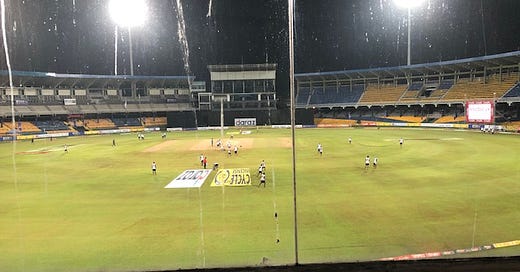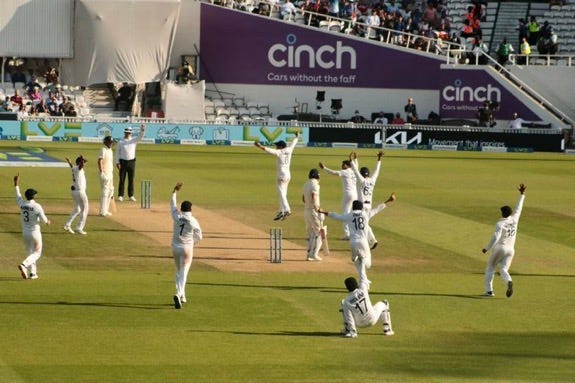That was as a grim a batting display as South Africa have ever produced in a One-Day International and the mood of gloom about their prospects of having to play in the World Cup pre-qualifying tournament deepened. There is still a long way to go before the 2023 World Cup but, while points continue to slip away, their chances of finishing in the top eight are diminishing.
It was a used pitch which made it slow and spin-friendly but it was far from impossible. The Proteas have played ODIs on much worse surfaces and scored 220.
Expect at least two out of three similar pitches for the T20 series which follows on Friday, Sunday and Tuesday. It can only be hoped that the skill of Quinton de Kock and experience of David Miller make a difference. At least the Proteas’ own spinners made good use of the conditions. 40 overs of spin. How about that…
Many thanks for the feedback from Jeremy who wrote to me asking why Faf du Plessis wasn’t considered for the Proteas T20 World Cup squad. Apparently, Jeremy’s entire WhatsApp ‘cricket group’ haven’t been able to find an ‘official explanation.’ There’s a good reason for that, Jeremy. There hasn’t been one.
When du Plessis retired from Test cricket he made clear his desire to remain available for Proteas selection in white-ball cricket and said he was willing to do whatever was required to compete for a place in the T20 World Cup. Basically, his offer was never accepted and nobody has ever taken responsibility for that decision. Whether or not he should have been selected is irrelevant. But somebody should have explained why his offer wasn’t accepted.
There was a perception that no precedent existed in South African cricket for single format players but, in fact, Jonty Rhodes retired from Test cricket and Daryl Cullinan from ODI cricket back in the 1990s and both had their national contracts restructured (with less pay) to pursue their chosen formats.
The difference this time around is that du Plessis and Chris Morris preferred not to be restricted by a national contract but were available on ‘freelance’ basis. In the absence of a functioning board of directors and a strong, full-time CEO, the du Plessis/Morris problem was filed in the ‘too hard’ drawer of the corporate filing cabinet and that was that.
It must also be said that Director of Cricket, Graeme Smith, and head coach Mark Boucher regarded themselves as the ultimate ‘team men’ to whom the idea of individuals being selected for World Cups, taking the place of loyal players who had done the heavy lifting on less desirable tours, was undesirable and, indeed, unfair.
England’s series against India has provided some compelling viewing and, as usual, no shortage of talking points. I’m including this photograph of India’s winning moment at The Oval not just because it is a terrific image, but it was taken by my old friend and commentary colleague, Adam Collins. What makes it even more amusing is that it was ‘borrowed’ by Sachin Tendulkar (or the people who operate his social media accounts) to send a congratulatory message to the Indian team. Great shot, Collo!





All teams essentially face two tasks: get the job done (whatever that may be), and maintain good working relationships. Too much focus on the former and relationships suffer (witness the current SJN hearings); too much on the latter and, in cricketing terms, you don't win. If any team, in any sport, wants to win at international level the best available team has to be selected. The Proteas' current selection criteria will help bolster team relationships, but they are destined to lose when faced with more functional teams. You can't have it both ways.